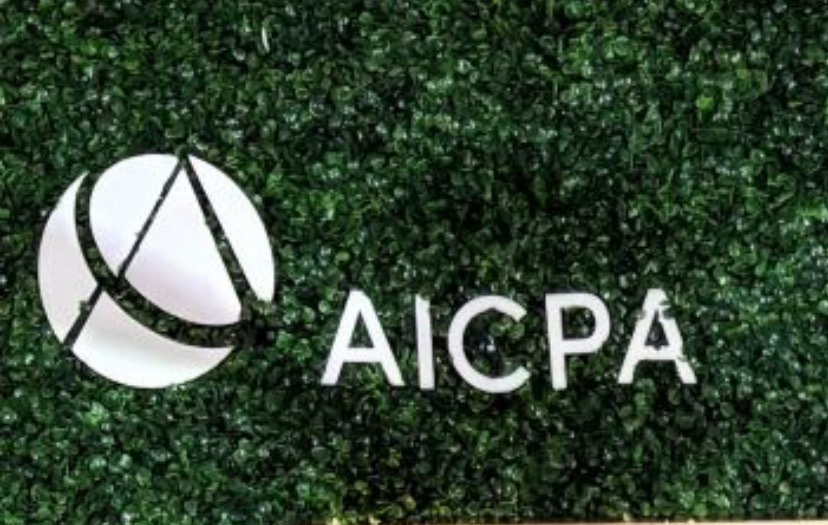AICPA News is a roundup of recent activities by the Association.
AICPA’s Auditing Standards Board Issues Auditor Reporting Standards
The American Institute of CPAs (AICPA) Auditing Standards Board (ASB) recently issued SAS No. 134, Auditor Reporting and Amendments, Including Amendments Addressing Disclosures in the Audit of Financial Statements.
The new standards include a new AU-C section 701, Communicating Key Audit Matters in the Independent Auditor’s Report, and replaces Section 700, Section 705, and Section 706 in the AICPA Professional Standards and addresses the auditor’s responsibility in forming an opinion on financial statements, form and content of the auditor’s report, as well as when the auditor concludes that a modification of opinion on financial statements is needed, as well as additional communication standards.
The ASB has also issued SAS No. 135, Omnibus Statement on Auditing Standards—2019, that is intended to more closely align ASB guidance with the PCAOB’s standards by primarily amending AU-C section 260, Communications With Those Charged With Governance, AU-C section 550, Related Parties, and AU-C section 240, Consideration of Fraud in a Financial Statement Audit, in AICPA Professional Standards.
Both SAS No. 134 and SAS No. 135 become effective for audits of financial statements for periods ending on or after December 15, 2020. The AICPA will offer a variety of resources and webcasts on the new auditing standards, with a schedule found here.
AICPA Makes Recommendations to IRS about Automatic Consent for Changes
The American Institute of CPAs (AICPA) recently submitted recommendations to the IRS regarding Rev. Proc. 2018-31, which provides a list of accounting method changes for which automatic consent is granted, commenting on key issues that they believe may require clarification or modification. Some of the recommendations include the following:
- Providing audit protection for taxpayers
- Including audit protection for any method change
- Add commissions to the type of compensation eligible for automatic consent procedures
- Provide automatic consent for an accrual method taxpayer to change from impermissible to permissible methods
- Provide automatic consent for method changes to comply with section 451(c
The AICPA made several other recommendations as well.
AICPA Honors James J. Leisenring with Gold Medal Award of Distinction
The American Institute of CPAs recently named James J. Leisenring, CPA, as the recipient of the Gold Medal Award of Distinction for 2019.
The Gold Medal Award is the highest honor granted by the AICPA, awarded to CPAs whose influence on the accounting professional has been notable. Leisenring was presented with the award at the spring meeting of the AICPA’s governing council.
Leisenring joined the FASB staff in 1982, and was appointed Senior Advisor to the Financial Accounting Standards Board (FASB) in 2010, also chairing the FASB Derivatives Implementation Group and the FASB Financial Instruments Task Force. He also served as chairman of the AICPA Auditing Standards Board prior to his appointment to the FASB. Leisenring received his BA from Albion College and an MBA from Western Michigan University.
NASBA, AICPA Issue Proposed Revisions to CPE Provider Standards
The National Association of State Boards of Accountancy (NASBA) and the American Institute of CPAs (AICPA) are seeking public comment on proposed revisions to the Statement on Standards for Continuing Professional Education (CPE) Programs (Standards).
The most significant proposed revisions include allowing for adaptive learning self-study programs within the self-study standards with references to the methodology to be used in determining the CPE credit for an adaptive learning program, along with clarifications regarding the awarding of CPE credit in different instructional delivery methods. The last revisions to the CPE Standards was in 2016.
Review of the 2016 Standards began in May 2018 and are the result of extensive review and evaluation of the Standards by the CPE Standards Working Group, NASBA’s CPE Committee, and the Joint AICPA/NASBA CPE Standards Committee, with the Boards of Directors of both NASBA and AICPA approving the proposed revisions. The Exposure Draft as well as the NASBA Fields of Study document are available for download on nasba.org or on aicpa.org. All comments to the proposed revisions must be made by August 31, 2019.
AICPA Responds to the OECD’s Proposal to Address the Tax Challenges of a Global, Digital Economy
The Association of International Certified Professional Accountants (the Association) recently submitted comments and recommendations to the Organization for Economic Co-operation and Development’s (OECD) on how to address taxation in a global, digital economy, recommending that any changes are consensus-based, equitable, and successfully durable.
The Association specifically cited five of its Principles of Good Tax Policy as the framework for its response: (1) equity and fairness to taxpayers; (2) certainty over the amount, timing and method of payment of a tax; (3) effective tax administration to both governments and taxpayers; (4) unimpeded or no reduction in economic growth and efficiency; and (5) enablement of appropriate government revenues.
Thanks for reading CPA Practice Advisor!
Subscribe Already registered? Log In
Need more information? Read the FAQs
Tags: PCAOB





